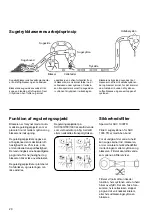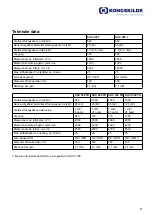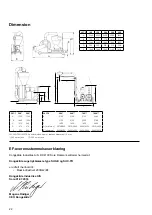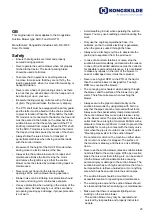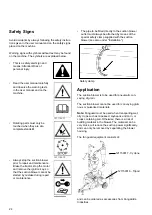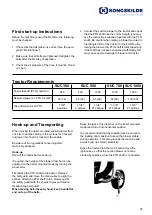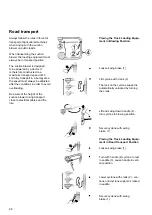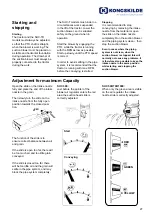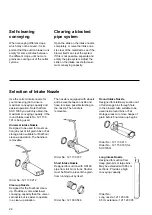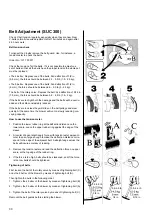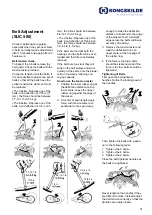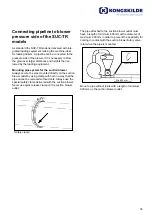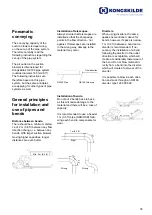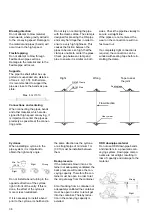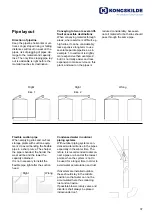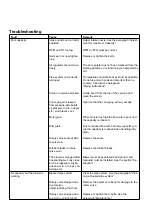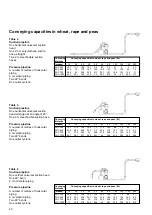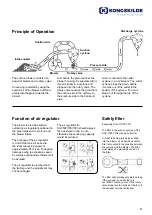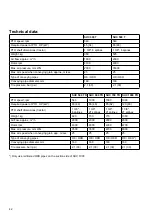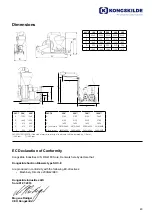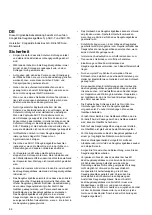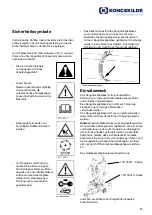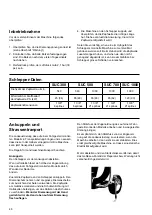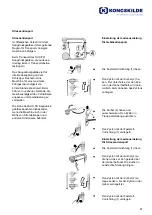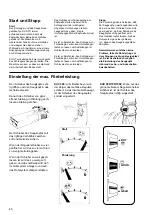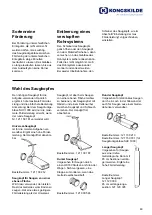
34
Piping Instructions
The capacity of the blower depends
to a large extent on the arrange-
ment of the pipe layaut.
The following points should be
observed:
1. Clean-up operations:
Connect the two flexible steel
hoses or a 45º bend and a steel
hose to suction cyclone and
use the hoses to bring the suc-
tion line uniformly down to the
ground. Then extend it with rigid
pipes and use the flexible poly-
hose just before the intake
nozzle.
2. Suction from a hopper:
Use the short suction line of
flexible steel hose only. The
highest capacity is obtained if
the intake nozzle is placed as
vertically as possible.
45° bend
Note:
The poly-hose is designed
for clean-up only. For prolonged
operations of the blower use the
heavy duty flexible steel hoses and
pipes only.
Use only one poly-hose in the
suction line. More poly-hoses will
reduce the conveying capacity
considerably.
Avoid connecting the poly-hose
directly to the suction cyclone. This
puts too much stress on the hose
and may cause a sharp bend
reducing capacity.
3. Keep the pipeline as short as
possible. Do not use more
bends and diverters than
6. If possible, all pipes should run
either horizontally or vertically.
Sloping pipes reduce capacity
and increase pipe wear.
7. Pipelines can be suspended in
long free spans but do not allow
these to exceed 4 m outdoors
and 5 m indoors without sup
-
port.
8.
Especially for SUC 1000:
Do
always use the sturdy OKR
clamps on both suction and
pressure side. Do always use
the reinforced OKR pipes on the
suction side of the blower.
necessary. This provides opti-
mum capacity and the gentlest
conveying.
4. Always use the OK160 dimen
-
sions for the entire pipe system.
Even a short piece of either
bigger or smaller diameter will
reduce conveying capacity con-
siderably.
5. Air leaks between pipes will
reduce conveying capacity. This
is more important on the suction
line than on the pressure line.
Therefore, take care to avoid
leaks on suction line. It should
be recommended to use the
sturdy OKR clamps on the
suction side.

